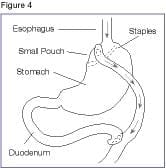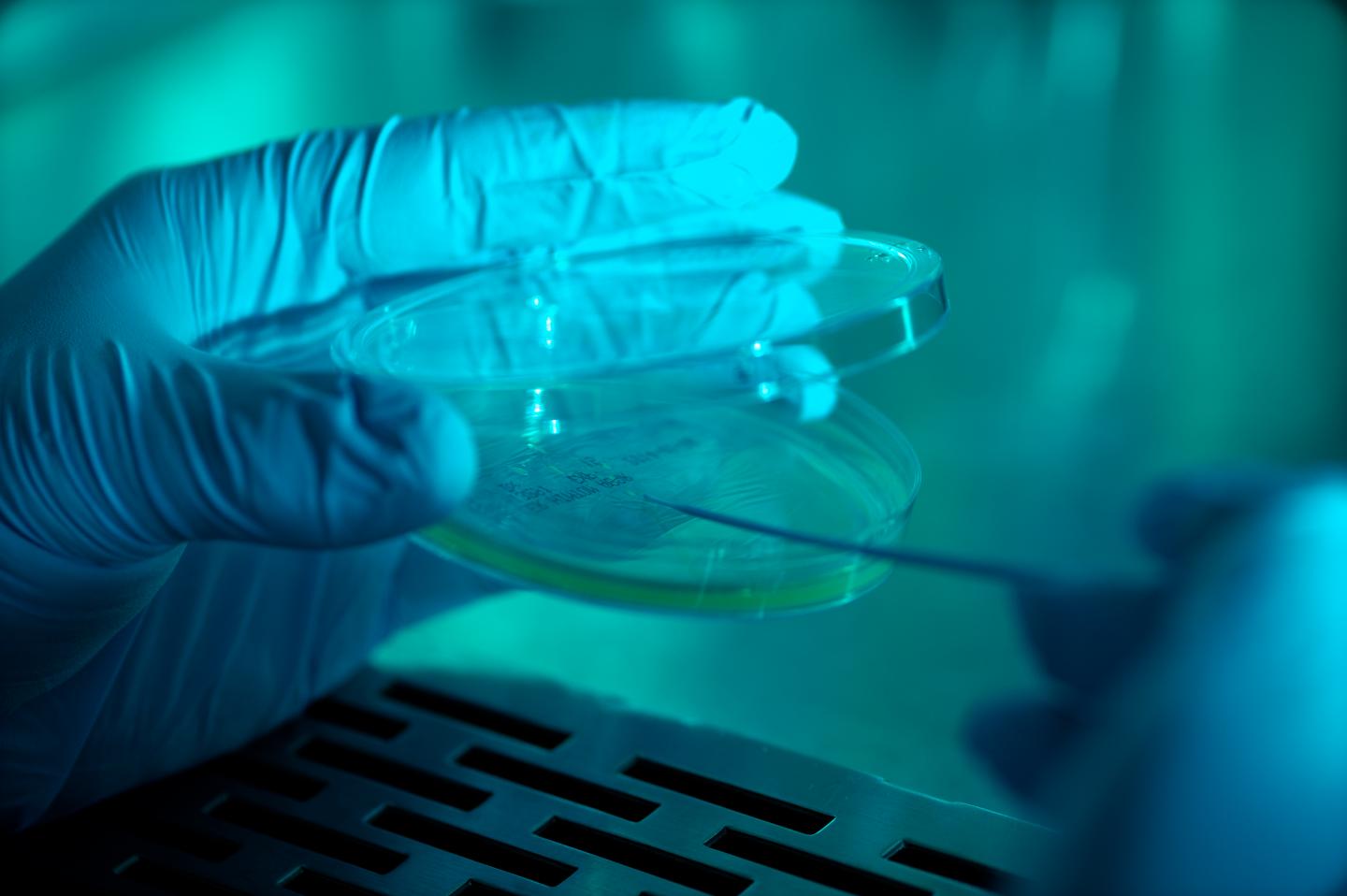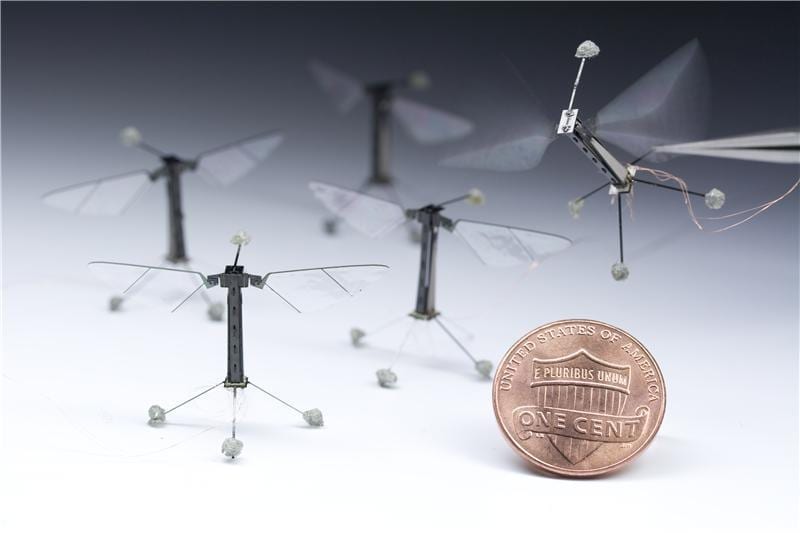
A Lund University research team has shed new light on why gastric bypass often sends diabetes into remission rapidly, opening the door to developing treatment with the same effect.
85% of patients with type 2 diabetes who undergo a gastric bypass procedure recover from the disease within a few days, showing a return to normal blood sugar levels – long before any weight loss. Until now, there have been few clues as to why this happens.
“Most previous studies have analysed samples taken from patients before and after a gastric bypass, but there is a risk that the results are misleading. They may not be attributable to the operation itself, but rather to factors such as weight loss and reduced food intake”, says Nils Wierup of the Lund University Diabetes Centre in Sweden.
In a gastric bypass, food bypasses the majority of the stomach and duodenum. Just a small part of the upper stomach is connected directly to the small intestine. In some cases, the surgeon inserts a catheter into the part of the stomach that no longer has contact with food as a precautionary measure. This was what gave the researchers an opportunity to study the exact difference between food intake before and after the procedure.
The participants were given a set amount of a nutritional drink and blood samples were taken before, during and at short intervals after it was ingested. The next step was to inject the same amount of nutritional solution through the catheter over the same length of time as it had taken the patient to drink it and the same samples were taken. The food then ended up where it would have been before the gastric bypass.
The comparison revealed a major difference.
“When the patient drank the solution, the insulin levels in the blood rose almost five times as much as when it was injected into the closed-off stomach. Intestinal hormones, which play a significant role in controlling blood sugar levels, rose sharply, as did certain amino acids. There was also a major impact on blood lipids, with the levels roughly halved”, says Nils Wierup, observing:
The Latest Bing News on:
Diabetes Treatment
- Revolutionizing Spinal Injury Treatment: Common Drug Found To Prevent Damage to Fat Tissueon April 27, 2024 at 10:17 pm
Study in mice finds that a widely-used medication prevents damage to fat tissue from injuries A new animal study suggests that conditions like diabetes, heart attacks, and vascular diseases, commonly ...
- Diplopia (Double Vision) and Treatment Effectivenesson April 27, 2024 at 6:21 am
Diplopia causes people to see double. It’s a symptom of many conditions, some of which don’t originate in the eyes, such as diabetes. Learn more.
- Semaglutide v. tirzepatide: What to know about popular weight loss and diabetes drugs like Ozempicon April 27, 2024 at 4:00 am
Over the past few years, medications like Ozempic and Mounjaro have revolutionized the treatment of Type 2 diabetes and obesity — and they’ve soared in popularity as a result. Studies have shown the ...
- Remove barriers to getting diabetes technologieson April 26, 2024 at 12:53 pm
Twenty-five years into the use and development of diabetes maintenance with CGMs, proven to decrease overall costs and increase standard of living, it is time for these barriers to be removed.
- Diabetes: Know Symptoms, Causes, Types And Treatmenton April 26, 2024 at 3:17 am
“Common symptoms of diabetes include feeling very thirsty, urinating a lot, being more tired than usual, losing weight without trying, and having blurry vision. If you notice these signs, see a doctor ...
- Diabetes drug shows promise for the treatment of acute heart failureon April 25, 2024 at 2:04 pm
A multicenter study led by Vanderbilt University Medical Center (VUMC) and Lipscomb University College of Pharmacy in Nashville has identified a potential new treatment for acute heart failure, a ...
- Inhaled insulin could improve lives of patients with diabeteson April 25, 2024 at 10:02 am
Millions of people around the world live with diabetes mellitus. Many of them have medication and specific dietary management approaches to help them maintain stable blood sugar levels. However, ...
- Treatment of osteoporosis with Denosumab associated with lower risk of incident diabetes especially among elderly: JAMAon April 25, 2024 at 8:45 am
Denosumab treatment is associated with a lower risk of incident diabetes especially among elderly patients with osteoporosis, suggests a new study published in the JAMA Network Open.Denosumab, ...
- Dr Beau Raymond: How Ochsner’s Digital Program Promotes Tailored Diabetes Managementon April 24, 2024 at 6:16 am
Diabetes treatment goals vary based on age and diabetes type, with more focus on managing insulin levels for children and adolescents while addressing comorbid conditions like obesity and hypertension ...
- Siblings with unique gene mutation offer insights into type 1 diabetes treatmenton April 20, 2024 at 10:51 pm
Two siblings who have the only known mutations in a key gene anywhere in the world have helped scientists gain new insights that could help progress the search for new treatments in type 1 diabetes.
The Latest Google Headlines on:
Diabetes Treatment
[google_news title=”” keyword=”Diabetes Treatment” num_posts=”10″ blurb_length=”0″ show_thumb=”left”]
The Latest Bing News on:
Diabetes
- Spending quality time in nature may lower heart disease, diabetes risk: Studyon April 28, 2024 at 12:20 am
Know how immersing yourself in nature can positively impact your health by lowering inflammation levels, potentially reducing the risk of heart disease and diabetes, according to a recent study.
- Heart health and diabetes: How can diabetic patients tackle cardiac arreston April 28, 2024 at 12:17 am
Risk of cardiac arrest can be daunting concern for diabetics but these proactive steps can significantly mitigate risk and enhance overall cardiovascular health ...
- Gallery: WAVY Warriors ride in Tour De Cure to end diabeteson April 27, 2024 at 3:33 pm
WAVY Warriors were among the participants for Saturday’s Tour De Cure. It’s a ride to help raise money in the fight to end diabetes.
- Semaglutide v. tirzepatide: What to know about popular weight loss and diabetes drugs like Ozempicon April 27, 2024 at 4:00 am
Over the past few years, medications like Ozempic and Mounjaro have revolutionized the treatment of Type 2 diabetes and obesity — and they’ve soared in popularity as a result. Studies have shown the ...
- Remove barriers to getting diabetes technologieson April 26, 2024 at 12:53 pm
Twenty-five years into the use and development of diabetes maintenance with CGMs, proven to decrease overall costs and increase standard of living, it is time for these barriers to be removed.
- Deepfake video falsely pitches dietary supplement as diabetes remedyon April 26, 2024 at 9:28 am
The Facebook video’s claim that Carlson and O’Neill discussed a dietary supplement that can cure diabetes and that it was made with Pfizer and approved by the FDA is Pants on Fire!
- Eating Avocado May Lower Diabetes Risk, Especially for Femaleson April 26, 2024 at 4:39 am
New research suggests that eating avocado may help lower the risk of type 2 diabetes in females but not males. Here’s why.
- This Type 2 Diabetes Food List Makes Grocery Shopping So Much Easieron April 26, 2024 at 4:00 am
Getting a type 2 diabetes diagnosis can feel overwhelming, and it may seem difficult to nail down the best healthy foods to properly fuel your body and keep your blood sugar stable. But fear ...
- Spencer Torkelson drops clothing collection, supports Juvenile Diabetes Research Foundationon April 26, 2024 at 3:11 am
KiwiClo, a Detroit-based clothing brand, is dropping a limited collection in collaboration with Detroit Tigers first baseman Spencer Torkelson.
- Man with diabetes trifecta shares his story of complications to help otherson April 26, 2024 at 2:20 am
Diabetes is a major reason people lose their vision or limbs or experience kidney failure, three complications that Joel Gonzalez, Jr. has dealt with in his life.
The Latest Google Headlines on:
Diabetes
[google_news title=”” keyword=”Diabetes” num_posts=”10″ blurb_length=”0″ show_thumb=”left”]










